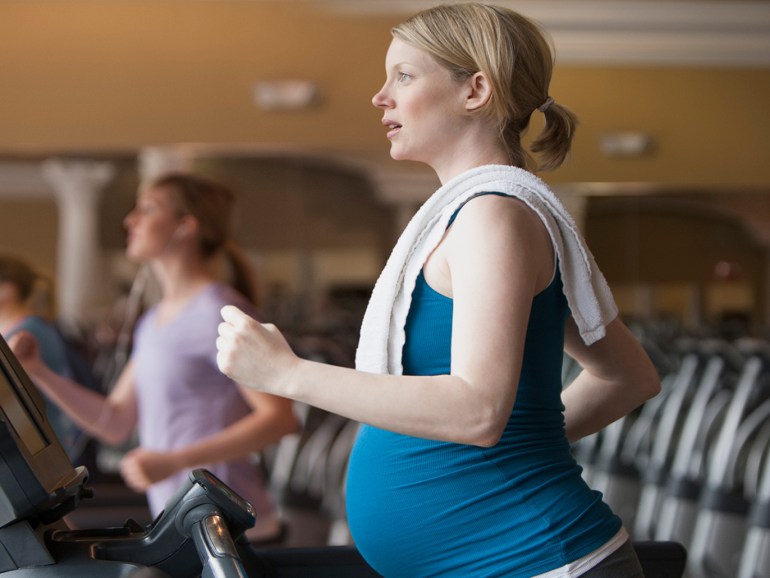Weight gain during pregnancy is expected for all women, although the weight of the fetus does not exceed 3-4 kilograms in recent months, but the increase associated with pregnancy exceeds that, but this change in the shape of your body should not spoil your joy in the enjoyable journey of pregnancy, as you can control In weight gain during pregnancy and immediately after childbirth to ensure fitness regains quickly.
Perhaps you should first review your weight before pregnancy, as you may have a full body if your BMI before pregnancy ranges between 25 and 29.9 (your BMI reflects the relationship between your height and your weight, which is an estimate of body fat), while counting obese if it is a mass index. Your body is 30 or more.
How much extra kilos you gain during pregnancy depends on your BMI:
If your BMI is 25 to 29.9, you may gain about 6-12 kilograms by the end of pregnancy, or at a rate of 1 to 1.5 kilograms per month in the second and third trimesters of pregnancy.
If your BMI is 30 or higher, you may only gain 5-10 kilograms during the pregnancy months.
A study published in 2010 in the journal Obstetrics & Gynecology revealed that pregnant women who gained more than the recommended weight were 50% more likely to develop gestational diabetes compared to mothers whose weight remained within normal limits.
Reward yourself with small amounts of sweets per week and do not give free rein to your desire to eat them to avoid gestational diabetes (Shutterstock)
Is it possible to follow a diet during pregnancy?
Pregnancy is not the right time to start a diet to lose weight, as limiting food intake can be dangerous for you and your growing baby.
But many plus size women lose weight during pregnancy without dieting.
And in the first trimester of pregnancy, it is common to lose weight as a result of morning sickness.
Nausea can reduce appetite, and vomiting can cause a loss of calories.
However, your baby will get all the calories needed for his growth.
Overweight women have an additional reserve of calories in stored fats, so as the fetus grows, it is possible to lose a little weight at first, but it is unacceptable to follow a diet to reduce the calories required for the body, because it limits the essential elements for the growth of your child.
Exercising and eating healthy can help you maintain weight, and both have a positive effect on your pregnancy, as this reduces the risk of pregnancy problems, such as gestational diabetes and toxicosis.
Exercising and eating healthy can help keep weight off (Agencies)
Golden rules
If you maintain the required caloric rate during the months of pregnancy, which includes all nutrients without excluding any element such as protein, carbohydrates and natural vitamins, do not expect excessive weight gain, but the extra kilograms will become very temporary, and it is easy to get rid of them immediately after birth, and you should follow 8 Rules for maintaining weight during pregnancy:
Monitor your diet even if you were on a healthy diet before pregnancy.
Avoid processed and unsafe foods.
Make sure to reduce the caffeine as you can.
Eat unprocessed marine fish (avoid canned tuna).
Take vitamins for pregnancy, and make sure to take vitamins in their natural form, in addition to the vitamins that the doctor recommends during pregnancy.
Do not follow a diet to lose weight, especially diets that exclude one or more nutrients, such as those that exclude animal protein, dairy products, or carbohydrates.
Reward yourself with small amounts of sweets a week, and don't give up your cravings to avoid gestational diabetes.
Make sure to follow a regular diet that includes small frequent meals during the day, and avoid intermittent fasting that depends on stopping food for long hours over 16 hours a day.

